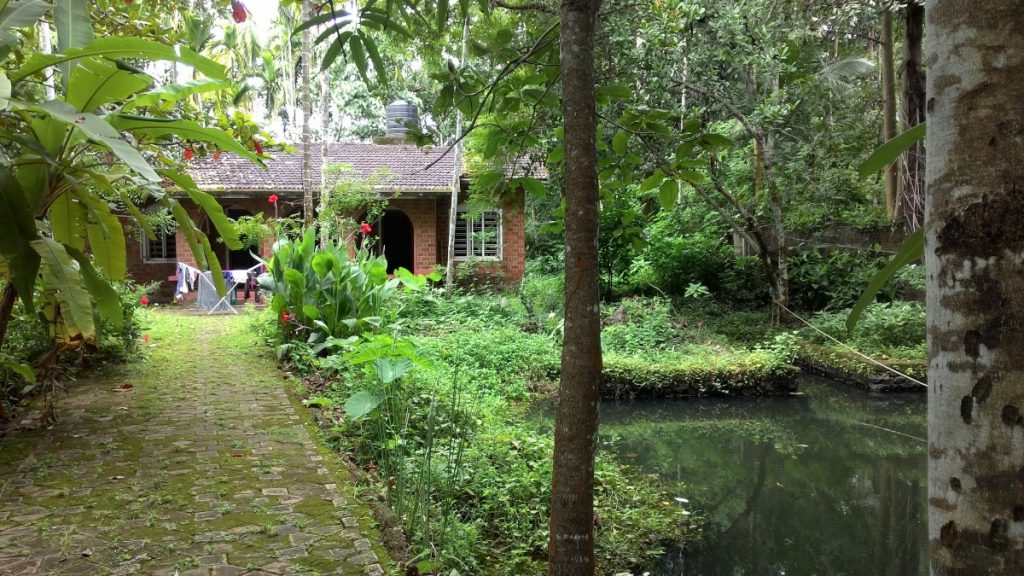Some years ago, we lived in a house with a pond and our two boys spent long hours swimming and lounging around in the water. It was like having a private swimming pool of our own. However, there is a fundamental difference between a pond and a swimming pool, and in this post I would like to talk about it.

What you notice about a pond is that it is alive – its an ecosystem, a self-contained world in itself. The plants and insects and animals that live in it appear to all be components of an ‘alive’ pond. The distinction will become clear when you see that swimming pools have energy-guzzling aeration, filtration and circulation systems that work hard to keep the water clean. Like a person on life support with a machine doing what occurs naturally and effortlessly in healthy people. In other words, a pond is a self-sustaining, effortless, natural system and the swimming pool, in contrast, is an energy-draining, effort-full, artificial system.
We can think of other natural/ artificial pairs like pond/ pool – for example, meadow/ lawn, forest/ plantation etc. An ecologist friend used to say that all of Kerala is one giant plantation. I point this out so that you are not deceived by the greenery in the photo above. It may look natural and forest-like but it is the greenery of an artificial plantation.
The pond/ pool idea serves as a good metaphor when applied to education. We can see that modern education is artificial and effort-full and pool-like. We need to move it in the direction of becoming natural and effortless and pond-like. I like to think that if we succeed, what has happened is Asli Shiksha.
What do you think?